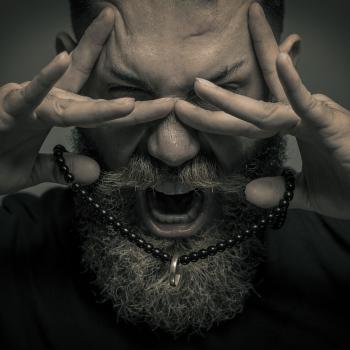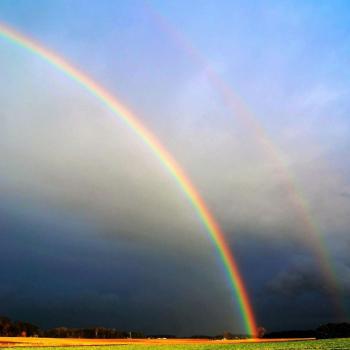TB: Killer Joe went through various permutations, and we ended up with a score that was a true collaboration between Billy and myself. The main objective was NOT to affect Tracy Letts' dialogue with the music. It was more about creating an organic moody vibe, and also to allow the dialogue to drive the music. If you see the film you will understand what I mean by that.
The Way is purely about emotion. The essence of the score lies somewhere between traditional score and music that belongs to Tom's journey, imbued with the nature of the geographical location. The most distilled answer is that the score is intended to address emotion on a core level. The themes are apparent but not refined like a typical score. Emilio really wanted guitar to be the central component to the music. He wanted all of the imperfections and artifacts that are more apparent in a street musician's performance as opposed to the pristine quality of a studio musician's performance. That was a boon of sorts because my guitar chops have suffered over the years of being a film composer. LOL.
TaLD: This score is much quieter and more intimate than your "swords and sandals" ones. Does this smaller, subtler score better reflect the spiritual dimension of its subjects' journey? And what was the driving force behind the decision to include so much American music in a film that takes place almost entirely in Spain?
TB: The songs in The Way were all chosen by Emilio. The majority of the songs are American, which represents Tom's mindset. He is in Spain, but the journey is Tom and Daniel's, as well as the people Tom meets along the way. I always approach my scores with true emotion. There is an obvious difference in syntax and dynamics when scoring a "sword and sandals" film as opposed to an intimate story like The Way. I am very much at home with personal films. I haven't had many opportunities to work on material of that nature but I would love to do much more of it.
TaLD: Despite the "scaled-down" nature of the score, there was one aspect of your work here that reminded me of some of your more "boisterous" efforts, particular the work you did on Snyder's Watchmen. In that film, you incorporate a great deal of preexisting music into your score: Glass' "Pruit Igoe" and "Prophecies," for example; or the works of Bob Dylan, Leonard Cohen, Janis Joplin, and a host of musical legends. On The Way's soundtrack, you did the same: James Taylor's "Country Road," Nick Drake's "Pink Moon," Alanis Morissette, and the wonderful Galician folk music of Berrogüetto. Yet there is a coherence and a wholeness to the score despite your many musical accomplices. How do you knit these (often radically different) sounds into a single soundtrack? And how do you manage to maintain your own unique, artistic voice in the midst of all this mixing and merging?
TB: The songs (including Phillip Glass) for each film were chosen by the directors. It is my job to factor these aspects into my approach. With Watchmen, there were several songs that I intentionally wrote against so that they would "pop," however with "Ride of the Valkyries," my job was to create a seamless transition into the source music. The Way didn't even require a discussion about how the score and songs would complement each other. It was very natural from the beginning of the project. I had a very good idea of what Emilio was going for. It's very rare when the composer is involved in the song selection process. I think the public has the idea that all of the music is subjectively handled by the composers on most movies, but the reality is that we work with what we are given.
TaLD: Sorry, I just can't let you go without one last question. I've spent the last few days listening to the score and enjoying it greatly. But there's one thing I still can't quite figure out. What words are being sung in the final track—"Muxia: A True Pilgrim?" It has a Kyrie-esque flavor, but I can't quite pin it down.
TB: Ha! That is Nan Vernon, who has sung on all of the Rob Zombie stuff as well as The Day The Earth Stood Still, and a few other projects I have done. Nan is masterful at vocalizing in what appears to be actual lyrics when they are not. We wanted to convey the "feeling" of a lyric, yet without commenting specifically on the story or main character at that point.
TaLD: Ah, good. I'm not losing my mind, then. (Or at least not for that reason). Thanks so much for your time, Mr. Bates, and best of luck in your future musical odysseys!
The Way soundtrack, released by Milan Records, is available now atiTunes and atAmazon. For more information on Bates and his work, please visitwww.tylerbates.com.





